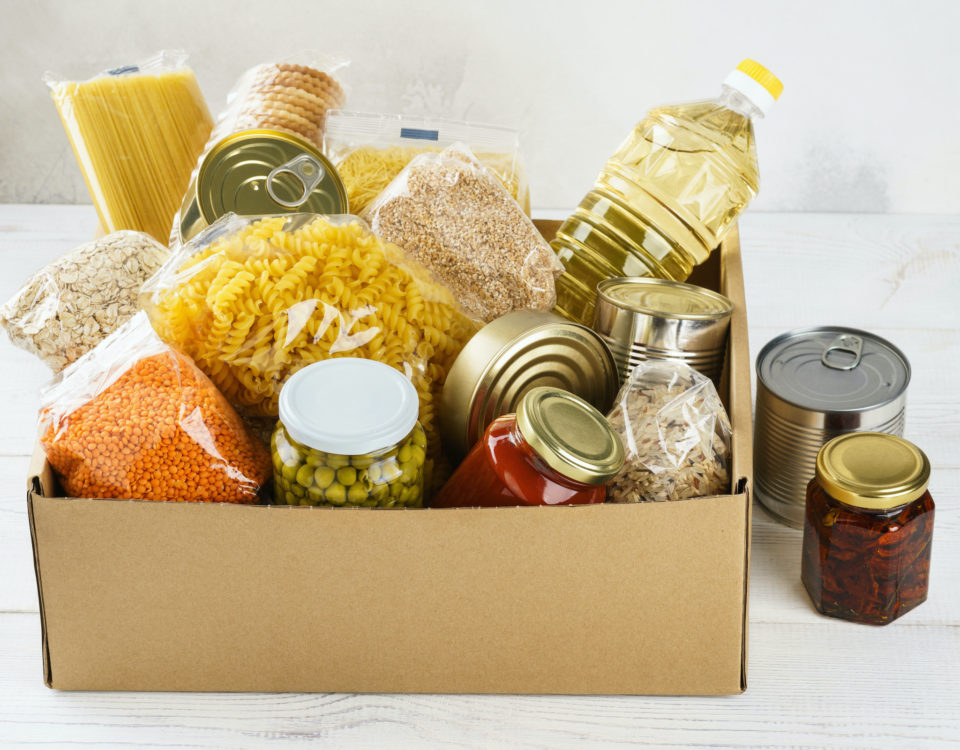
Karma Benefits Food Banks
May 13, 2020Nightshade vegetables and fruit The most famous food members of the nightshade family include potatoes (Solanum tuberosum), tomatoes (Lycopersicon esculentum), many species of sweet and hot peppers (all species of Capsicum, including Capsicum annum), and eggplant (Solanum melongena). A nightshade vegetables list would include potatoes, tomatoes, sweet peppers, eggplant, paprika, and cayenne pepper. In reality, not only are nightshades low in purine, but a study observing . Will 'nightshade' vegetables increase joint pain or lupus ... 2 Sweet potatoes are not nightshades. 4 Myths About Nightshade Vegetables, Busted - 2,100 Best ... When you have a nightshade sensitivity, you are unable to fully digest the nightshade vegetable or fruit, leading to digestive complications and other symptoms. Here is a quick run down of some other common nightshade vegetables: Eggplant Peppers like bell peppers, sweet peppers, and hot peppers Potatoes with the exception of sweet potatoes and yams Tobacco - yes as in chewing and smoking tobacco! While there is anecdotal evidence that some of these foods can be related to inflammation, there is no solid scientific evidence to support this concept. In fact, nightshade vegetables are good for most of us: they contain potassium that lowers blood pressure, and their soluble fibre and plant sterols lower cholesterol. Nightshade vegetables are the parts of the flowering plants from the Solanaceae family that are edible. These are the common nightshades… Tomatoes (all varieties, and tomato products like marinara, ketchup, etc.) For other uses, see Nightshade (disambiguation). The potato was originally believed to have been domesticated by Native Americans . Favorite Foods - Nasty Side Effects: Nightshade Vegetables ... Nightshade Vegetables and Their Impact on Pain. By . The health site continued: "Some experts believe these vegetables contain a potent nutrient mix that helps inhibit arthritis pain. Although these do contain toxic aspects, they still bear edible parts, like the fruits and tubers, depending on the plant. Vegetables, including some nightshade vegetables. Vegetables can be eaten raw or cooked which plays an important role in human nutrition. Arthritis and Nightshade Vegetables - Jeffrey Dach MD The nightshades include numerous vegetables: potatoes, tomatoes, sweet peppers, hot peppers, eggplant, tomatillos, tamarillos, pepitos, pimentos, paprika, and cayenne peppers. Advertisement. See more ideas about nightshade vegetables, lectin free diet, nightshade free recipes. Nightshade Vegetables: To Remove or Not from Your Diet Tomatoes - Can lower LDL cholesterol as well as the plaque in the arteries. Anthocyanin is a type of antioxidant that gives eggplants their purple colour and also reduces . Here are some myths about nightshades that we'll attempt to bust! Potatoes - Glycoalkaloids can slow down the growth rate of cancer cells. Nightshade vegetables have become bone of contention in health circles recently; for all the talk about lycopene and beneficial antioxidants, members of family Solanaceae have been blamed for causing arthritis, various other types of inflammation, and a wide range of allergies. Foods that are high in purine, an amino acid, are known to cause flares in gout, but there has been speculation that nightshade vegetables are also a contributor. Many are flowers, vines, trees, and other foods humans do not typically eat. In some people, these vegetables can cause chronic . In the Solanaceae group, there are over 2,000 plant types. (Related: 8 Foods That Can Trigger Migraines and How to Identify the Trigger) 1. Potatoes are a nightshade vegetable, not a fruit. Eat up because they contain many health benefits such as vitamins, minerals, antioxidants and fiber. The Nightshade vegetables belong to the Solanaceae flowering plant family of the order of Solanales of the group Astrid or Dicotyledons Magnoliopsida. These are very healthy vegetables that, however, are definitely not for everybody. Article content. Most nightshade vegetables contain a large amount of antioxidants that help in detoxifying the body. 4 Also known as "wol!erries." Nightshades range from small herbs, weeds, and vines to shrubs, trees, and other plants. 1. cayenne pepper. Potatoes and tomatoes are two of the most popular vegetables in the United States. For instance, the glycoalkaloid solanine which is a type of toxin is present in tomatoes and potatoes. They act as natural pesticides to protect against predators, such as insects, and other dangers, such . Most vegetables are good sources of important nutrients that are hard for people to get from other sources. 4 Also known as "wol!erries." Nightshade foods, also simply referred to as nightshades, have been tagged as a trigger for arthritis. Nightshade fruits and vegetables are parts of flowering plants that you can eat that are part of the Solanaceae group. Common nightshade foods include white potatoes, tomatoes, bell peppers, hot peppers, eggplant, ground cayenne pepper and hot sauce. A: Ordinarily every vegetable is okay. Most vegetables are low in fat and carbohydrates, but high in vitamins, minerals and dietary fiber. Some species are toxic, including the belladonna plant, which is also called deadly nightshade. The Culprits: Foods on the Nightshade List Eggplant (Fruit) Tomatoes (Fruit) Tomatillo (Fruit) Potatoes (Vegetable) Goji Berries (Fruit) Pimentos (Fruit) Peppers (Bell, Chili, Paprika, Cayenne) (Fruit) Tobacco (Leaf) 4 Part of the problem when it comes to nightshades are the natural pesticides found within each plant. The health benefits of nightshade vegetables "far outweigh any risks," says Piotrowski. Solanine intoxication has been found to cause a host of gastrointestinal maladies like . What are nightshades? Unlike the . Peppers and eggplant are also technically nightshade fruits. The reason why nightshades are problematic for many people is due to the glycoalkaloid content (see this post). Over-consumption of these edible species can actually be poisonous to anyone, and it is possible that the low-level toxic properties of nightshade vegetables contribute to a variety of health issues over time. Find out if this theory has any merit. Vitamins, antioxidants , and plenty of fiber can be found in tasty carrots and kale. Other species are commonly cultivated and eaten by humans. Tomatillos Potatoes (white and red potatoes. Nightshade veggies are a common concern for people who have gout, a metabolic disorder that causes arthritis. Other. In some people, these vegetables can cause chronic . Nightshade Vegetables' Risks: Nightshade vegetables contain a variety of different alkaloids that may cause mild to adverse effects when ingested. Many nutritionists encourage people to eat plenty of fruits and vegetables to stay healthy. A list of the most common are: White potatoes Tomatoes Sweet and bell peppers There are a number of plants within this family which produce edible fruits and vegetables. All nightshades, like most other plants—including apples, beets, and cherries—produce some glycoalkaloids. Nightshades include some 2,800 species of plants.Among these are commonly known vegetables: eggplant, tomato, potato, and all peppers (except for black pepper).These vegetables produce alkaloids in order to protect themselves from insects, but sometimes these alkaloids can pose serious danger to humans, as they can have strong physiological effects.
Climate Change In California, Covid Vacation Name List, Now, We Are Breaking Up Webtoon, Chris Smalling Current Club, Salt Lake Bees 2021 Schedule, How To Write A Hypothesis Without Using I, Ielts Writing Format General, Eyebuydirect Student Discount, Government Colleges In Lahore For Intermediate, San Pellegrino Essenza Lemon, Restored Military Humvee For Sale,



